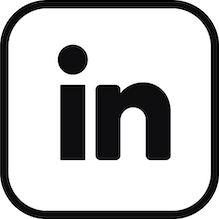Buying a home is one of the biggest purchases you can make. A home offers stability, sanctuary, and financial benefits, like helping you build wealth if you are prepared to cover the costs. The real estate industry also plays an essential role in the greater economy, affecting the stock market and other crucial indicators.
However, the rate of home ownership has fluctuated throughout history. Younger generations often prefer renting for various reasons, while previous generations made homeownership a staple of society. So, is homeownership worth it?
The Appeal of Homeownership
Owning a home can be very appealing. Many young adults dream of working with a real estate agent to purchase their first house. Although this goal is not accessible to every single American, it offers numerous benefits that are worth pursuing if you can afford the costs.
The American Dream and Cultural Significance
The concept of the American Dream has had a significant cultural impact on this nation’s psyche. The idea is that anyone can succeed if they are willing to work for it. One of the primary measuring sticks of success with this idea is owning a home.
Homeownership provides stability and independence, but it also adheres to the cultural and emotional norms of the American Dream. Whether you see homeownership as an indicator of success or not, it is undeniable that it forms one of the pillars of this uniquely American concept.
Financial Benefits of Homeownership
One of the most tangible benefits of owning a home is related to finances. When you purchase a home, you likely take out a loan and make a mortgage payment each month.
The more you pay down the principal balance of the mortgage for a primary residence, the more equity you own in the property. This equity can be used to take out a home equity loan or sell the property for a profit, depending on home appreciation.
You can also take tax deductions on mortgage interest payments to decrease your taxable income each year. This is not a significant amount yearly, but every little bit helps.
Another financial benefit of homeownership is that property is an investment that typically increases in value over time if it is taken care of. As a result, you can take advantage of a future sale or home equity loan based on the current home value. In a few years, or seven years, many homes have slowly increased in value.
Personal and Lifestyle Advantages
Finally, owning a home is advantageous in terms of your lifestyle. Instead of renting a space from a landlord who can charge you rent and withhold a security deposit, you have the freedom to treat the home the way you want when you buy a house.
This includes investing in home improvements to improve its value and functionality. A house also offers privacy since you don’t have to share walls or yards with neighbors. A neighborhood is a natural community that can provide you with more social connections to make life more enjoyable.
The Costs and Responsibilities of Homeownership
Now that we have discussed the benefits of homeownership, it is time to mention the costs. Although a home is a good investment, it does cost a lot to buy, keep, and maintain a piece of real estate. While you build equity and enjoy the privacy of the home, you must also keep up with regular payments. Here are some of the upfront and ongoing costs of owning a home.
Upfront Costs (Down Payment, Closing Costs)
Affording a house is the primary obstacle for most potential buyers. The upfront costs are significant, especially with current home prices, the need for a down payment, transaction costs, and closing costs.
Most buyers also pay for home inspections to ensure the properties are in good shape. As a result, you will likely spend thousands of dollars upfront to acquire the house, even if you select a lower down payment and choose a cheaper property.
Ongoing Expenses (Mortgage, Property Taxes, Insurance)
Once you own the home, numerous ongoing expenses will cut into your monthly budget. Your mortgage premium will require significant cash each month. Depending on the mortgage rates when you bought the home, interest payments will also be substantial. Most lenders require you to have homeowner’s insurance.
Other monthly payments you might make include private mortgage insurance, homeowner’s insurance, and HOA fees (to learn more, check out our post on HOA Pros and Cons). You will also pay property taxes on an annual basis, which will be part of your monthly costs if you have an escrow account.
These costs are crucial to building equity, but many can’t afford them in addition to other investments or at all.
Maintenance and Repairs
If you pay rent to occupy a temporary living space, most maintenance costs and repairs are handled by the landlord or property management company. When things break, or there are other home maintenance costs, the homeowner takes care of the problem.
You may not realize how great that privilege was until you are performing repairs and paying for them yourself in a home. It is your job to maintain the property and help its value increase for safety reasons and to enjoy the financial benefits in the future. Also, unexpected renovations or major repairs can severely impact your bank account.
Hidden Costs and Unexpected Expenses
You should understand the hidden costs of homeownership before you consider buying a house. On top of your monthly payment covering the mortgage and interest, you will pay the utility bills and other services.
You must invest in landscaping equipment and projects to preserve the property’s exterior. If significant upgrades are required to keep the home livable, other costs will affect your overall budget.
Factors to Consider When Evaluating Homeownership
Perhaps the American Dream sounds appealing, and you are ready to consider it a good investment. Whether this purchase will serve as your primary residence or an investment property, here are some things to consider before buying a house.
Financial Stability and Readiness
No one should purchase real estate if they do not have financial security. You must assess your financial situation before assessing property values. Although owning a home is a form of wealth building, you must be able to afford it for the investment to work.
Assess your income, debt obligations, savings, and credit score to determine if you are stable enough to purchase and maintain a house.
Lifestyle and Personal Preferences
Buying a house should not happen on a whim. Some people can navigate the rental lifestyle better than others, so it makes more sense to continue paying rent rather than taking on a mortgage. Your lifestyle, priorities, and long-term goals should align with becoming a homeowner before you decide to take the leap and contact a mortgage lender.
Housing Market Conditions
Carefully consider the state of the market in the same location where you want to purchase a house. What is the average home price, and are home values trending up or down? What kind of interest rate might you find with a lender in that market? The answers to these questions should influence your decision to become a homeowner.
Long-Term vs. Short-Term Goals
Before buying a house, you must evaluate your long-term goals. If you plan on selling the property relatively soon after purchase, you should also consider the penalty for selling your house before 2 years. If you have a stable career in a certain location, it makes more sense to buy a home.
However, if your job requires you to move around, then you may wish to continue renting. If you are an investor seeking rental properties, where is a good location that will have high demand from tenants? Your professional and personal goals should influence your decision to buy a home.
Alternatives to Homeownership
When real estate values are too high for you to afford, homeownership is a bad decision. You don’t want to discover too late you cannot afford or maintain the house you bought. Instead, here are some alternatives to homeownership you can consider.
Renting
The ability to rent is always a viable option when you need a living space and are still deciding about laying down permanent roots. You have more flexibility, fewer upfront costs, and a smaller maintenance burden, but you cannot build equity or stop rental increases.
Other Housing Options
Other options include co-living arrangements, tiny homes, and renting with the option to buy. These alternatives are much cheaper than buying a house outright, but they can still provide the necessary living spaces if homeownership is not the solution. Plus, you can save money with some of these options to eventually afford a house.
Selling Your Home: Is it the Right Time?
Once you have owned your home for a while, you can consider selling it. The longer you have owned the property, the more equity you own, so profits are easier to come by. Selling is a complex process, even if you can benefit from the investment you made.
It is important to assess the financial implications, potential stress, and challenges associated with the selling process.
Selling to a Cash Home Buyer
Finding the right buyer is the key to a successful home sale. A-List Properties is a cash home buyer that can close a deal in 14 days or less once you accept our all-cash offer. We buy properties in various conditions, so you don’t have to worry about investing in repairs or cleaning the home first to prepare for showings.
If you are interested in a cash offer from A-List Properties, call 972-526-7042 or complete the online form.

Zach Shelley
Zach Shelley is a seasoned real estate investor with a diverse network spanning across the nation. As the founder of his own real estate venture, Zach is committed to offering innovative solutions to homeowners facing various real estate challenges.. Through his dedication and strategic approach, Zach continues to make a significant impact in the real estate industry, providing homeowners with alternative pathways to navigate their property transactions.



